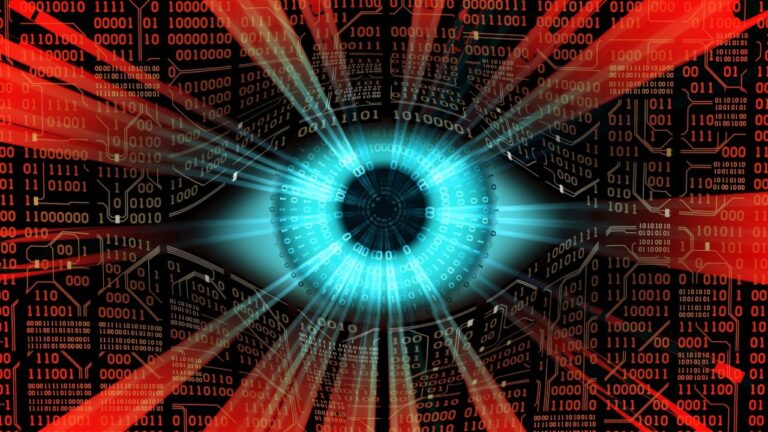Recent reports that large-scale language models are developing new capabilities beyond their programming parameters suggest that once artificial intelligence (AI) is fully integrated with real-time datasets, artificial intelligence (AI) or It suggests that its human masters may be tempted to use it to control, manipulate, and suppress people. I can't resist. Totalitarian governments have been early adopters of digital surveillance technology to give them the ability to consolidate their power. Can democracies resist the temptation to comply?
In recent books such as “We Have Been Harmonized” and “Surveillance State,” the authors show that the Chinese Communist Party uses more than 300 million facial recognition cameras, mobile phone applications, GPS services, Internet gating mechanisms, and citizen movements; A variety of human observers to collect and analyze data about activities, thoughts, and patterns. Often packaged as a way to enhance society's safety and security, these technological tools can be used to entitle or punish citizens based on their adherence to authoritarian rules. rapidly promoting a new form of government. Atrocities against classes of people like China's Uyghurs are clear examples of such abuse of power.
There is no hiding from the ubiquitous digital surveillance that governments can impose, and once it is embedded throughout society, there is little chance of defeating it. Even the most well-intentioned surveillance program can result in government intervention before the next step, opposition, occurs, of course, in the name of public safety.
Edward Snowden believed that the National Security Agency was heading down that path, leading him to choose the self-defeating path of releasing classified material. He seems to have anticipated this kind of oppressive scenario, even in Hollywood. “Person of Interest (2011) and Mr. Robot (2015) graphically depicted an environment where governments and corporate interests compete to control machines, and where machines have effectively taken over society.
Governments are not the only ones who may be tempted by the way digital technologies are implemented. Shoshana Zuboff introduced this topic in her 2019 book, The Age of Surveillance Capitalism. Surveillance capitalism may have started with companies like Facebook and Google, but as technology gets cheaper and the stakes increase, unethical players are taking over even more of our lives for profit. Harmful uses of technology will become common as we use technology to harvest, digest and sell parts.
In a recent article in The Atlantic titled “The Rise of Techno-Authoritarianism,” executive editor Adrian La France explains how Mark Zuckerberg was able to launch Facebook. ing. Because, as he said, “stupid motherfuckers” trusted him. Zuckerberg offers us a more prophetic perspective on the potentially destructive and addictive technologies that can seduce unsuspecting people into devoting large portions of their lives to them. Ta. LaFrance characterizes the actions of those who run companies involved in such authoritarian technologies as hypocritical, greedy, and status-obsessed people whose power to redesign society now lies with Wall Street. and Washington.
We are standing on a terrifying precipice. Technology can lead to unimaginable improvements in the human condition, but it can also lead to unimaginable manipulation and control at the hands of power-hungry governments and corporate executives. So regulating the elements, products, and people who seek to compete in this new world is an unpleasant but necessary choice. At the end of the day, I don't want decisions about my life to be made by short-sighted, potentially unelected, despicable officials, rather than technocrats who see us as a faceless data set to which they have no access or authority. I like to do things.
It is clear that we are just at the forefront of a revolution that is hurtling toward new levels of machine consciousness similar to the way humans learn, analyze, and make decisions. Because it happens in a relatively uncontrolled environment, I can imagine a time when we humans lose control and machines start making decisions. After all, isn’t that what the human masters who programmed these machines do?
The possibility of new kinds of authoritarianism and human tyranny through the perverse use of new technologies is one of the most terrifying challenges facing humanity today. The main reason for this is that humanity will become less involved in the future of the world. Understanding this, why don't governments and malicious people try to control the machines that can control us?
The temptation to exploit the tyranny of technology is overwhelming and may already be part of our future. That script will only change if we choose to identify the risks, agree on how to oversee them, and find capable leaders to referee the process. There is no sign that these leaders are coming forward and our leaders just seem to know how to create slogans that pit us against each other. I wish our children and grandchildren all the best.
Thomas P. Vartanian is executive director of the Financial Technology & Cybersecurity Center and author of The Unhackable Internet.
Copyright 2024 Nexstar Media Inc. All rights reserved. This material may not be published, broadcast, rewritten, or redistributed.


